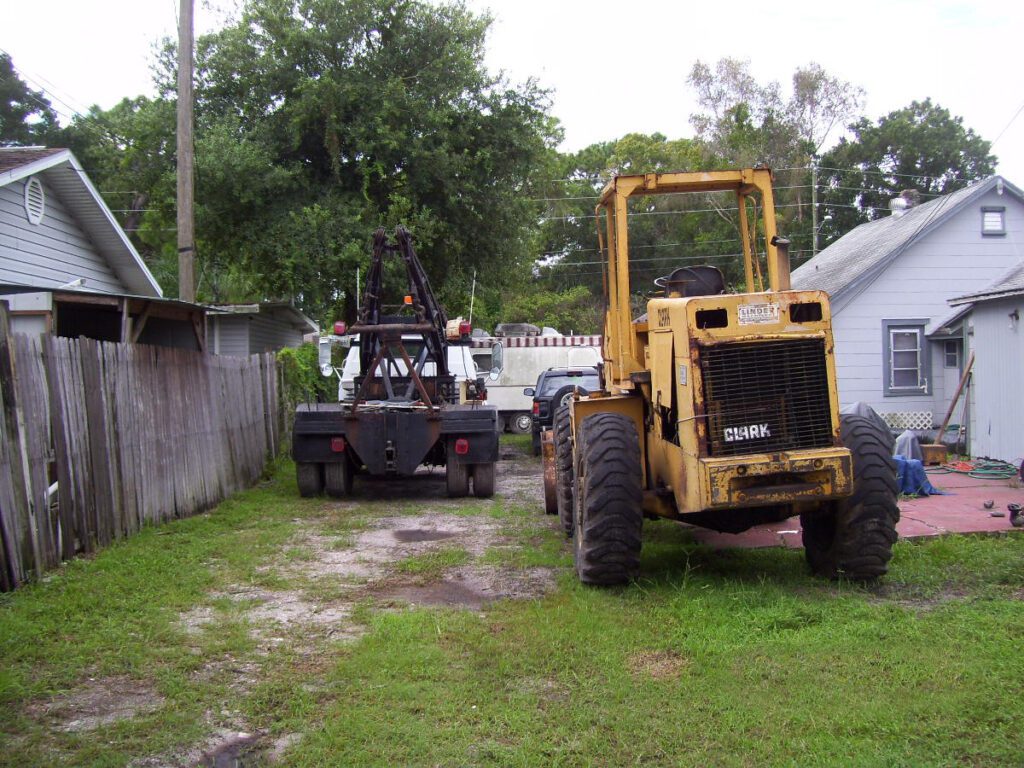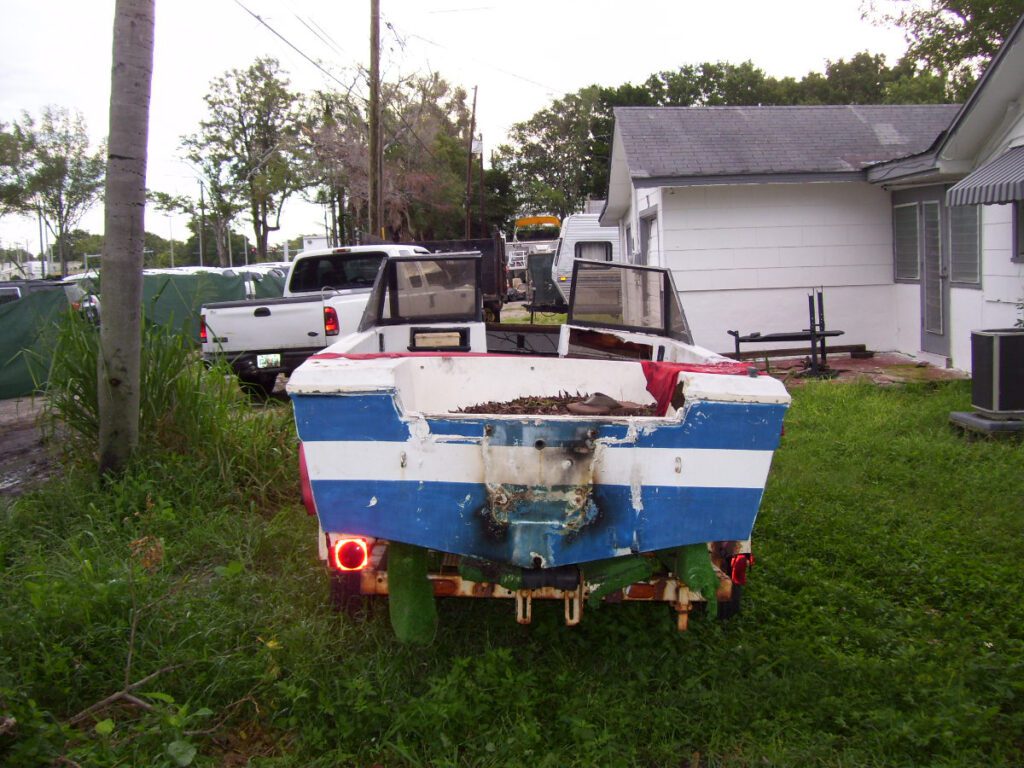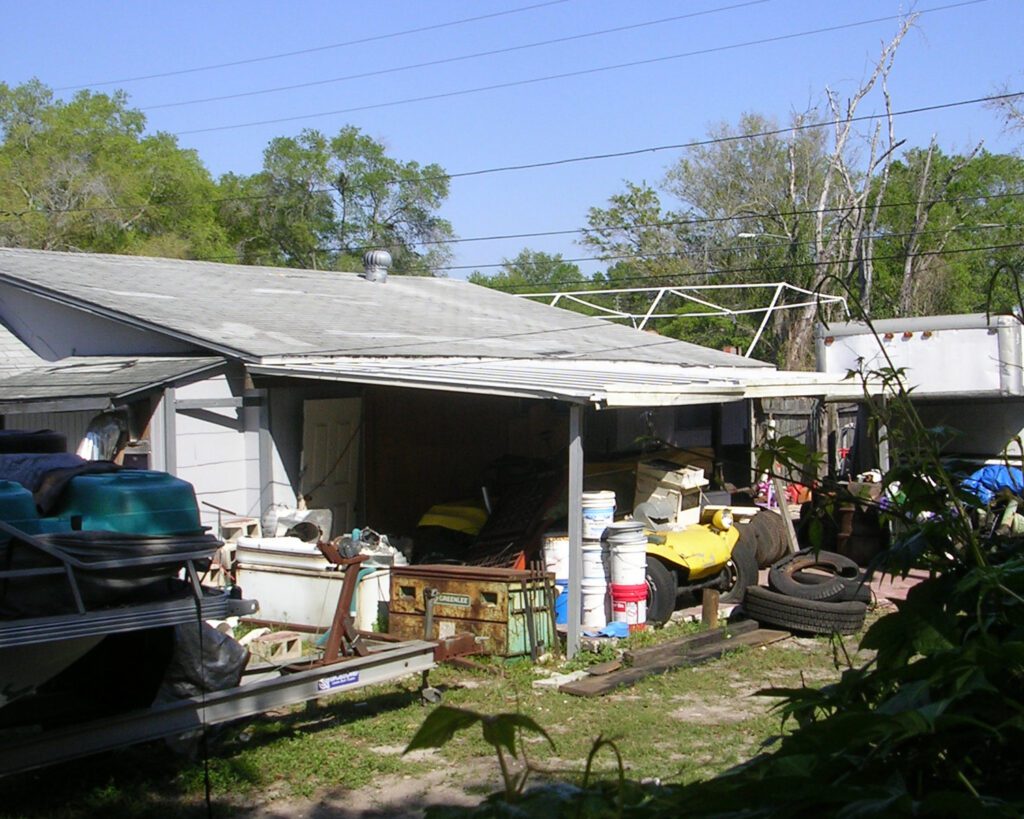Common Enforcement Codes and Questions
The following summaries will help you identify and understand different sections of the Pinellas County Code. These codes apply to unincorporated Pinellas County.
Pinellas County does not enforce the rules of homeowner associations. Our Code Enforcement only has regulatory authority over direct violations of a county ordinance.
- Verify your jurisdiction through the My Neighborhood tool.
- If you live in a city or municipality, please contact them for more information.
This is not the full or exact code language, so you should rely on the actual code entries for the most accurate guidance for these enforcement concerns.
For current Land Development Code specifics, contact Development Review Services at (727) 464-3888 or review the complete code.
Commercial Vehicles in Residential Areas
Sec. 122-37

You are not permitted to park commercial vehicles within residential areas. The type of vehicle, not how it’s used, determines whether or not it’s commercial. Cars, motorcycles, RVs, passenger vans, work vans and pick-up trucks are exempt.
Vehicles that have been equipped with attachments such as racks or utility beds are limited to one per dwelling. Including racks, cargo and equipment, the vehicle cannot exceed 8 feet in height, 8 feet in width, and 21 feet in length and should be parked on a prepared, inorganic surface.
You may park commercial vehicles in a garage or other enclosed structures to avoid a violation.
Can I park my truck on my property?
Most family-use pick-up trucks, vans and utility trailers are not considered commercial vehicles and can be parked on your property. However, if the vehicle has attachments such as racks or utility beds, you are allowed only one vehicle per dwelling. Including racks, cargo and equipment, the vehicle cannot exceed 8 feet in height, 8 feet in width and 21 feet in length, and should be parked on a prepared, inorganic surface. For code specifics, see Sec. 122-37.
Can I park a recreational vehicle at my property?
Travel trailers and motor homes are limited to 40 feet, must be operational and must have a valid tag and registration. Connection to utilities as an accessory dwelling and / or prolonged habitation is prohibited. Pinellas County Code Enforcement does not enforce deed restrictions. Contact your homeowner association directly for information. For code specifics, see Sec. 138-1(b).
Inoperative Vehicles
Sec. 58-270

Vehicles, including cars, boats, motor homes, motorcycles and trailers, must be in condition to be legally operated on the roads or waterways of Florida. Vehicles with cosmetic imperfections are not a violation if they are in working order with a current tag. Vehicles kept inside an enclosed garage are not a violation.
What makes my car an inoperative vehicle?
A vehicle is considered inoperative if it cannot be legally operated on the road because of a cracked or missing windshield, broken lights, flat tire, etc. or if the tag is expired.
Minimum Housing Standards
Sec. 22-299

The Housing Code applies to all structures and sets minimum standards for dwellings and accessory structures, such as sheds and pools.
It addresses the structural and basic maintenance of a residence, as well as things that might negatively impact neighborhood property values, such as badly peeling paint or general disrepair.
See Yard Maintenance below for code around grass, weeds, trash and debris.
Noise Control
Sec. 58-541
Pinellas County uses a decibel control program that limits the noise allowed on a property.
In residential areas, you are allowed a noise level of 72dBA (decibels) between 9 a.m. and 10 p.m. Normal maintenance and use of equipment such as lawnmowers, chainsaws, leaf blowers, and flushing boat motors are exempted when used reasonably during these hours.
After 10 p.m., the allowable level is reduced to 55dBA, which is about the level of a normal conversation between two people standing five feet apart.
Excessive noise from parties, people, or vehicles is handled by the Pinellas County Sheriff’s Office. Report by phone at (727) 582-6200.
Noise Affidavit
Use this sworn, notarized affidavit to report unreasonably loud and raucous noise by providing your contact information, the location of the noise, and a description with specific dates and times. Submit the completed form to Pinellas County Access Portal. By signing, you agree to appear at a hearing to present testimony and evidence.
Yard Maintenance: High Grass/Weeds, Trash & Debris
Sec. 58-304
All developed properties, whether vacant or occupied, must be maintained.
It is unlawful to accumulate trash, debris, garbage, food waste, inoperable vehicles, refuse, or other noxious items on any property in unincorporated Pinellas County. You cannot collect these materials in your yard or allow others to dump them on your own property.
If your grass and weeds reach a height of 12 inches over the majority of the property, it is a violation of Sec. 58-331. We may send a notice of violation to the property owner or other responsible party at the address of record and also post a placard on the property and at the Pinellas County Courthouse. If the property is not mowed and debris is not removed, we may hire a contractor to do it and place an interest-accruing lien on the property for the costs incurred.

Who removes dead trees?
Property owners are responsible for tree removal on private property. Please review Pinellas County Tree Removal / Permits before you remove any trees.
Zoning
Sec. 138-1

Zoning regulates the legal uses of a property. Residential zones are generally for homes and their accessory uses. Commercial and manufacturing zones are typically for business and industrial enterprises.
A zoning clearance may be required for uses and structures on a property, even if a permit is not. A clearance ensures that a proposed use or structure is allowed in that zone and that it meets all of the Code requirements.
Fences
The maximum height for a fence or wall on a residential property line is 6 feet. Any portion of the fence placed inside the front building setback cannot exceed 3 feet in height. Fencing is only allowed on private property. Fences are not permitted to enclose alleys or encroach on the right of way. For code specifics, see Sec. 138-3700 to 138-3709.
Do I need a permit to install a fence?
Permits are generally not required for chain link, wood or vinyl fences. However, a zoning clearance may be required under certain conditions.
Sheds and Accessory Structures
All structures must be placed on a lot so they are set back at a specific distance from a property line. The parcel’s zoning, along with the structure’s size and proposed location, governs the placement. For code specifics, see Sec. 138-3505(c).
Do I need a permit to install a shed?
Sheds that are less than 100 square feet and no taller than 10 feet do not require a permit for residential property, unless they are connected to utilities. The shed must be a minimum of 3 feet from the property lines, unless the property is surrounded by a 6-foot-tall opaque fence. Sheds larger than 100 square feet require permits and must meet property setback requirements.
Signs
This section of the zoning code addresses the size, height, location, and the number of signs on property in unincorporated Pinellas County. Allowable signage is based upon factors that include how a property is zoned, the length of road frontage, the length of building frontage, and the type of sign. For code specifics, see Sec. 138-3750.



